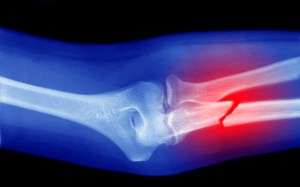A new study has concluded that poor people, Black or Latino, were less likely to receive stimulus checks. The $1,200 payments were distributed over the spring as part of the CARES Act, which was aiming to help soften the economic impact of the coronavirus pandemic.
The study itself was conducted by the Tax Policy Center, which concluded that the already issue-laden rollout had quite a few disparities across income, race, ethnicity, and family citizenship in regards to who got a payment, according to USA Today. Thirty percent of adults under the age of 65 reported that their families had not received the stimulus payments as of late May. Nearly 59 percent of recipients with incomes at or below the federal poverty level reported receiving the payments. However, 74 percent of white adults reported getting the checks, compared to nearly 69 percent of Black adults and almost 64 percent of Hispanics.
Videos by PopCulture.com
The report did cite a few of the reasons that may have prompted some of these issues. People not having a bank account or lacking access to the internet were primary reasons across the board. However, Latinos had some eligibility issues if they or their spouse were undocumented or did not qualify as residents of the United States.
The findings echo a survey done by the Urban Institute. Its results, which were released earlier in July, indicated that those who needed the payment most were most likely to be waiting for one. While 70 percent of families had received payment by mid-May, the survey also revealed some rather substantial disparities that were mostly centered on the income, race and citizenship status of the recipients.
As with the Tax Policy Center study, income appeared to be the most significant factor, with 77 percent of eligible adults above the federal poverty level. In comparison, less than 59 percent beneath it had not. However, the institute did point out that some of the issues could be that those below the poverty level often don’t file taxes, meaning the IRS didn’t have the most recent address on file.
While there have been numerous issues, the issue was made worse by having a limited support system. First, questions were limited to the IRS ‘Get My Payment’ portal, which had plenty of issues itself. Eventually, the IRS was able to offer phone support for the most basic question, which didn’t resolve some of the more perplexing problems that some faced.









